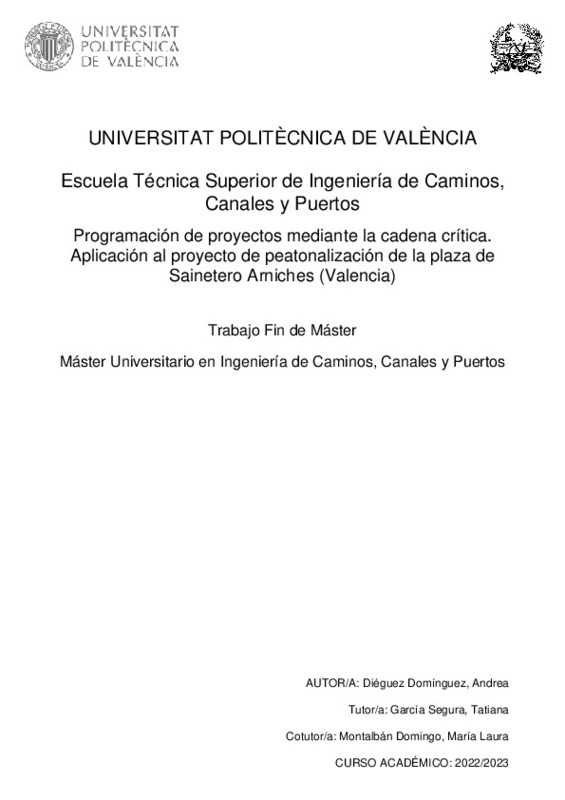JavaScript is disabled for your browser. Some features of this site may not work without it.
Buscar en RiuNet
Listar
Mi cuenta
Estadísticas
Ayuda RiuNet
Admin. UPV
Programación de proyectos mediante la cadena crítica. Aplicación al proyecto de peatonalización de la plaza de Sainetero Arniches (Valencia)
Mostrar el registro completo del ítem
Diéguez Domínguez, A. (2023). Programación de proyectos mediante la cadena crítica. Aplicación al proyecto de peatonalización de la plaza de Sainetero Arniches (Valencia). Universitat Politècnica de València. http://hdl.handle.net/10251/196333
Por favor, use este identificador para citar o enlazar este ítem: http://hdl.handle.net/10251/196333
Ficheros en el ítem
Metadatos del ítem
| Título: | Programación de proyectos mediante la cadena crítica. Aplicación al proyecto de peatonalización de la plaza de Sainetero Arniches (Valencia) | |||
| Otro titulo: |
|
|||
| Autor: | Diéguez Domínguez, Andrea | |||
| Director(es): | ||||
| Entidad UPV: |
|
|||
| Fecha acto/lectura: |
|
|||
| Resumen: |
[EN] Throughout history, methods have been developed to carry out project planning. Currently,
these traditional methods are insufficient or imprecise for the planning of civil works.
Generally, the lack of prior planning ...[+]
[ES] La falta de planificación previa en la gestión de obras conlleva generalmente retrasos en la entrega del proyecto o plazos de ejecución. Estas fluctuaciones de tiempo suponen un aumento de costes significativo. A lo ...[+]
|
|||
| Palabras clave: |
|
|||
| Derechos de uso: | Reserva de todos los derechos | |||
| Editorial: |
|
|||
| Titulación: |
|
|||
| Tipo: |
|
Localización
recommendations
Este ítem aparece en la(s) siguiente(s) colección(ones)
-
ETSICCP - Trabajos académicos [2365]
Escuela Técnica Superior de Ingenieros de Caminos, Canales y Puertos








